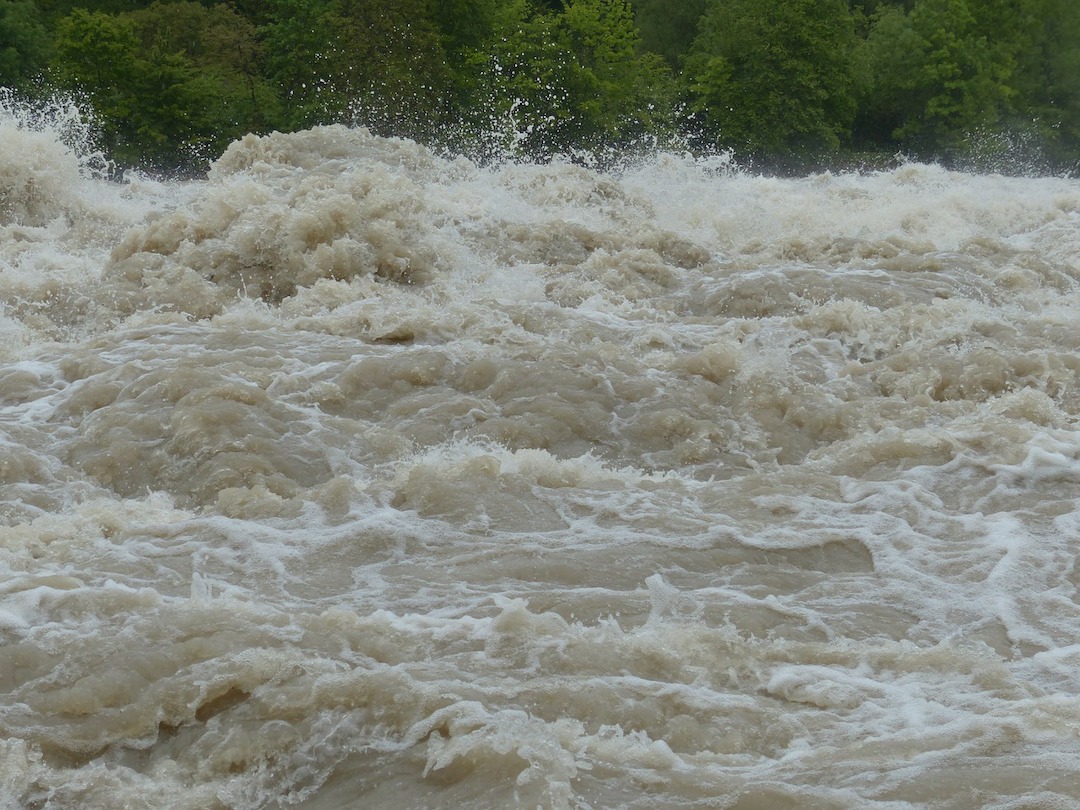Recent storms such as Hurricanes Ida and Henri that claimed dozens of lives due to flooding point to the need for cities to increase efforts to stem the impact of heavy rainfall.
The recent storms support the notion that climate change is making the impact of large storms worse. The atmosphere holds more water as temperatures rise. The air becomes 4% more saturated with water for every 1-degree Fahrenheit that the planet warms. Thus, the heaviest downpours in the Northeast now drop 55% more rain compared to those events in the 1950s, according to the most recent National Climate Assessment.
Better data about flood risks could help cities make massive rainfall events less deadly, but data gathering has not kept up with the latest conditions. The Federal Emergency Management Administration’s flood maps are outdated and don’t account for the kind of flooding directly caused by extreme rainfall.
Cities must upgrade urban stormwater infrastructure including street-level drains, concrete sewers that can capture and hold water, roadside ditches, and flood-control reservoirs to cope with the new reality. In addition, more green spaces could help absorb some rainfall, preventing it from entering drains. These steps can help, but it remains to be seen if it is even possible to engineer our way to 100% protection against flooding.
Related Stories
| Aug 23, 2022
New Mass. climate and energy law allows local bans on fossil fuel-powered appliances
A sweeping Massachusetts climate and energy bill recently signed into law by Republican governor Charlie Baker allows local bans on fossil fuel-powered appliances.
| Aug 22, 2022
Gainesville, Fla., lawmakers moved to end single-family zoning
The Gainesville City Commission recently voted to advance zoning changes that would allow duplexes, triplexes, and quadplexes to be built on land currently zoned for single-family homes.
| Aug 16, 2022
DOE funds 18 projects developing tech to enable buildings to store carbon
The Department of Energy announced $39 million in awards for 18 projects that are developing technologies to transform buildings into net carbon storage structures.
| Aug 11, 2022
Report examines supposed conflict between good design and effective cost management
A report by the American Institute of Architects and the Associated General Contractors of America takes a look at the supposed conflict between good design and effective cost management, and why it causes friction between architects and contractors.
| Aug 10, 2022
U.S. needs more than four million new apartments by 2035
Roughly 4.3 million new apartments will be necessary by 2035 to meet rising demand, according to research from the National Multifamily Housing Council (NMHC) and National Apartment Association.
| Aug 9, 2022
Work-from-home trend could result in $500 billion of lost value in office real estate
Researchers find major changes in lease revenues, office occupancy, lease renewal rates.
Legislation | Aug 8, 2022
Inflation Reduction Act includes over $5 billion for low carbon procurement
The Inflation Reduction Act of 2022, recently passed by the U.S. Senate, sets aside over $5 billion for low carbon procurement in the built environment.
Legislation | Aug 5, 2022
D.C. City Council moves to require net-zero construction by 2026
The Washington, D.C. City Council unanimously passed legislation that would require all new buildings and substantial renovations in D.C. to be net-zero construction by 2026.
| Aug 4, 2022
Newer materials for green, resilient building complicate insurance underwriting
Insurers can’t look to years of testing on emerging technology to assess risk.
Codes and Standards | Aug 3, 2022
Some climate models underestimate risk of future floods
Commonly used climate models may be significantly underestimating the risk of floods this century, according to a new study by Yale researchers.

















